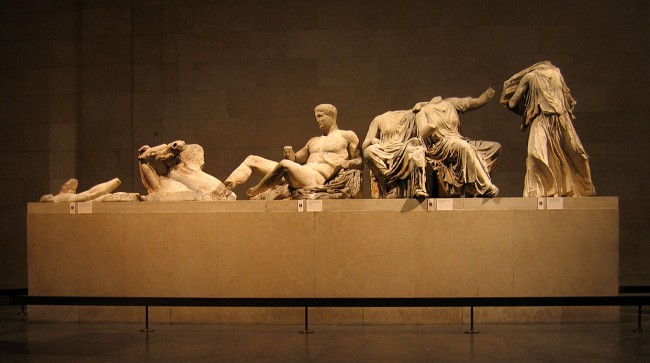Egypt calls for antiquities unity
15 Απριλίου 2010
States which say artefacts have been stolen and displayed overseas should unite to recover their stolen heritage, Egypt’s top archaeologist has said.
Zahi Hawass, head of Egypt’s Supreme Council of Antiquities (SCA), urged culture officials from around the world to draw up lists of missing items.
Some 20 countries are represented at the two-day conference in Cairo aimed at recovering artefacts from overseas.
The SCA wants many pharaonic items returned by Western museums.
“Museums are the main source for stolen artefacts,” he told delegates from countries including Libya, Greece, Italy, China and Peru.
“If they stop (buying stolen artefacts) the theft will be less.”
Stepped-up efforts
Mr Hawass told the delegates their nations needed to work together to recover their heritage.
“Every country is fighting alone, every country suffered alone, especially Egypt,” he said. “We will battle together.”
Representatives are also considering calling on the United Nations cultural body, Unesco, to amend a convention banning export and ownership of antiquities stolen after 1970 – so that they can pursue items that were snatched earlier, says the BBC’s Yolande Knell in Cairo.
In recent years, the Egyptian authorities have stepped up their efforts to recover stolen artefacts, with the head of the SCA, Zahi Hawass, attracting international attention for his efforts.
Last year, he broke off ties with the Louvre museum until France returned fragments chipped from a wall painting in an ancient Egyptian tomb.
He has repeatedly asked for the Rosetta Stone – which has been kept in the British Museum for more than 200 years – and a 3,400-year-old bust of Queen Nefertiti on display in Berlin, to be given back to Egypt.
Greece has long demanded that the Parthenon Marbles should be given back by the British Museum, while Peru is taking legal action to try to reclaim Inca treasures from Yale University in the United States.
Source: http://news.bbc.co.uk/go/pr/fr/-/2/hi/middle_east/8608513.stm




